High Speed Paper Straw Machine
Introducing our YKM-50 Single Knife Paper Straw Making Machine, a cutting-edge solution that transforms paper strips into high-quality drinking straws with precision and efficiency. This innovative machine excels at winding and spiraling multiple layers of paper strips into sturdy paper tubes, followed by a thorough drying process in the heating area. With its advanced single knife cutting system, driven by servo tracking technology, it delivers flawlessly cut paper tubes, creating perfect small paper drinking straws. Elevate your paper straw production with the YKM-50, where accuracy meets innovation for superior results.
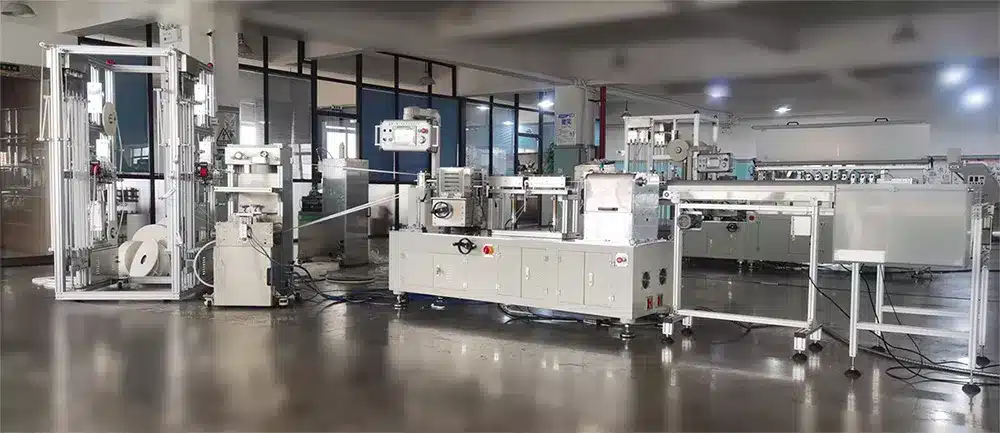
Key Features of the Paper Straw Making Machine
High-Speed Performance
Capable of input speeds up to 180m/min and output speeds of 150m/min for enhanced production efficiency.
Advanced Cutting System
Equipped with a single-knife cutting system and an innovative flying knife design. The programmable cutting length is fully adjustable, offering flexibility for various production needs.
Precision Control with Servo Motors
Powered by three servo motors to control the spiraling rollers, ensuring precise and smooth operation throughout the process
Automatic Paper Roll Splicing
The automatic paper roll splicing feature supports seamless connection of up to 4 layers of paper, minimizing downtime and boosting productivity.
Top-Quality Electrical Components
Key electrical components are sourced from renowned brand Schneider, including the main servo motor, servo motor driver, frequency converter, and the user-friendly touchscreen interface.
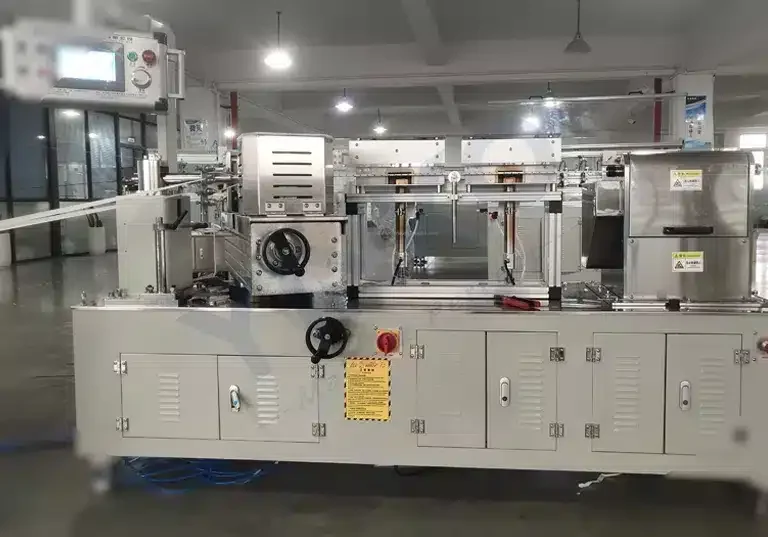
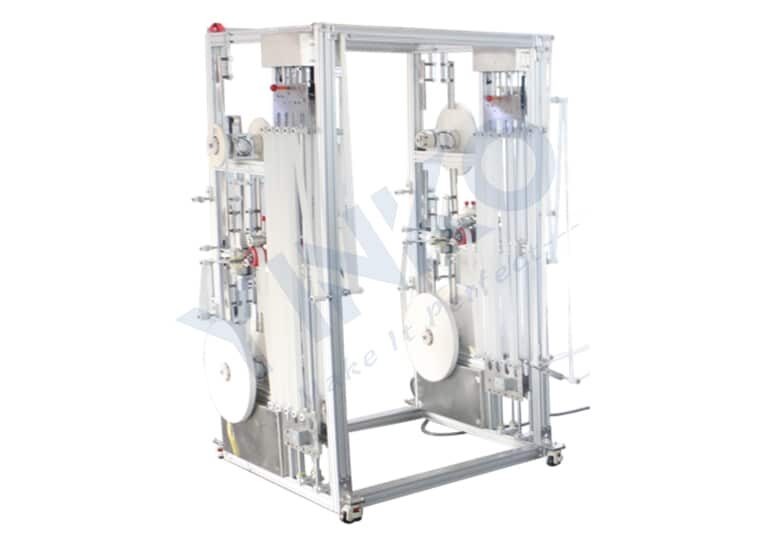
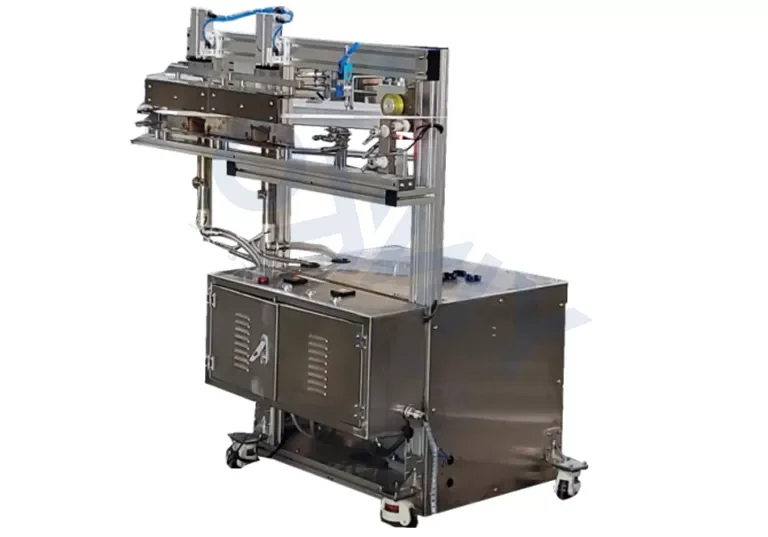
Technische Spezifikation
| Model number | Single knife paper straw machine YKM-50 | ||
| Technical parameter | Control system | ||
| Layer of paper | 3-4 layers | PLC controller | Schneider |
| Max. Outer Diameter | 9mm | Human-machine interface | Schneider |
| Min. outer diameter | 3.3mm | Program version | GD-XJ 5.0 |
| Max. Thickness | 0.5mm | Servo system | Schneider |
| Min. Thickness | 0.2mm | Performer | Schneider |
| Min. Length | 120mm | Max Length | 500mm |
| Output speed | 3-150m/min | Signal component | Omron |
| Winding system | 2 servo/1 pc belt | Pneumatic component | Airtac |
| Cutting way | 1 knife pneumatic/1 servo | synchronous control | Synchronous belt |
| Klebemethode | Glue extraction circulate | ||
| Lenght control | Encoder | Assemble | |
| Operator | 1 Person | Tube rack | Haben |
| Dornbefestigung | Schraubzwinge | Belt angle adjustment | Wheel adjustment |
| Geschwindigkeitskontrolle | Servo | Belt tension adjustment | Wheel adjustment |
| Power input | 3P/380V/50HZ | Paper-break stop function | Haben |
| Machine dimension | 2150*800*1650 | Schmierung | Electric roller |
| Floor area | 7000*3000*1700mm | Paper tension control | Continuous tension control |
| Wheel diameter | 195mm | Paper holder | Automatic paper connecting holder |
| Wheel height | 100mm | Belt | Piece baseband |
| Max. spin speed | 200r/min | Total weight | 1150KGS |
Watch the Straw Making Machine in Action
Paper Straw Machine Working Principle
The process of manufacturing paper straws involves several distinct steps, utilizing various machines to ensure efficiency and quality. Here’s a detailed overview of the working process:
1. Raw Material Preparation
- Material Selection: The primary raw material is food-grade kraft paper, often sourced in large rolls. This paper must meet specific safety and strength standards.
- Inspection: Before use, the raw materials undergo inspection to ensure quality.
2. Printing (Optional)
- If branding or designs are required, the kraft paper is printed with eco-friendly inks before being cut into strips.
3. Slitting
- Machine Use: A slitting machine cuts the large rolls of paper into narrower strips. This step is crucial for achieving the desired width for the straws, typically around 10-12 mm.
- Layering: Depending on the design, multiple layers of paper may be used, often three layers for added strength.
4. Straw Production
- Gluing: The paper strips are coated with a non-toxic adhesive that helps bond the layers together during the next step.
- Spiral Winding: The glued strips are wound around a mandrel in a spiral fashion to form a tube. This process adds strength and stability to the straw.
5. Drying
- First Stage Drying: After winding, the straws pass through a drying chamber where heat is applied to set the glue and enhance structural integrity.
- Second Stage Drying: Following crimping (if applicable), a second drying phase further strengthens the straws.
Vorteile & Nachteile von Papierstroh
VORTEILE
- Papierstrohhalme sind biologisch abbaubar und somit eine umweltfreundliche Alternative zu Plastikstrohhalmen, deren Zersetzung Hunderte von Jahren dauern kann.
- Papierstrohhalme können recycelt werden, was den Abfall reduziert und zu einer stärkeren Kreislaufwirtschaft beiträgt.
- Papierstrohhalme werden aus erneuerbaren Ressourcen wie Papierzellstoff und pflanzlichen Klebstoffen hergestellt, was sie zu einer nachhaltigeren Wahl macht
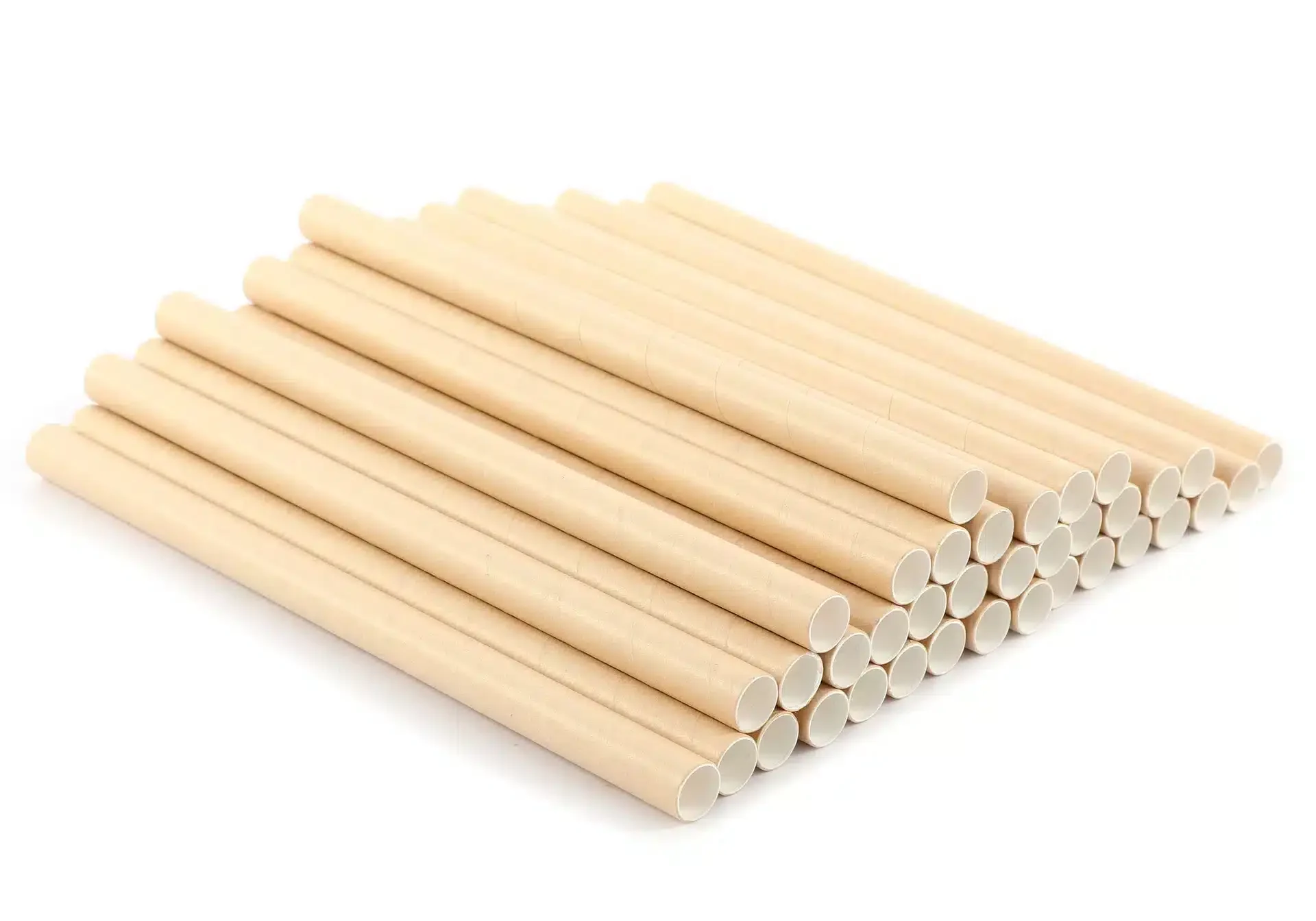
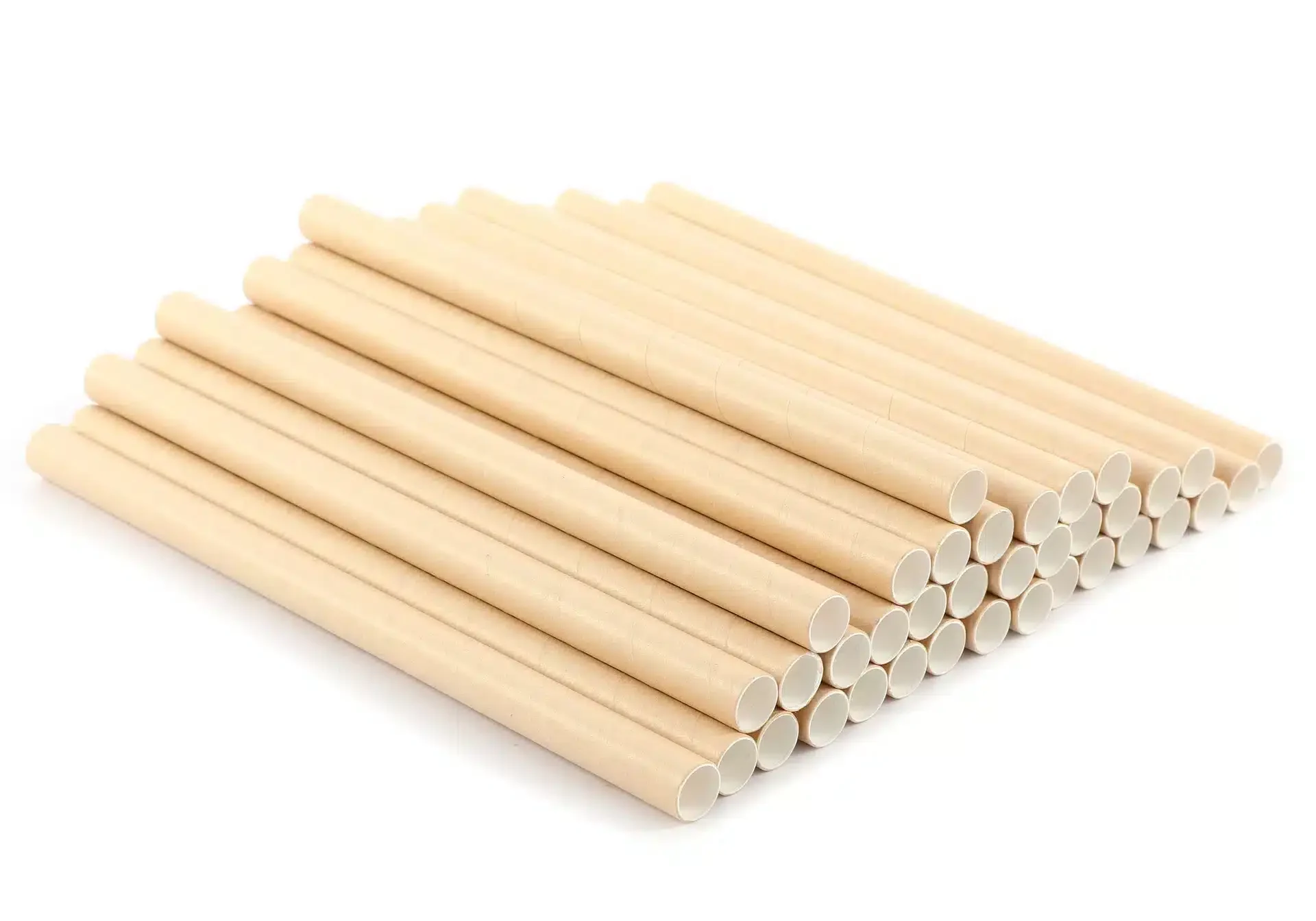
NACHTEILE
- Papierstrohhalme sind nicht so langlebig wie Plastikstrohhalme und können durchnässen oder zerfallen, wenn sie über einen längeren Zeitraum Flüssigkeiten ausgesetzt werden.
- Papierstrohhalme können teurer sein als Plastikstrohhalme, was einige Unternehmen möglicherweise davon abhält, umzusteigen.
- Für Heißgetränke sind Papierstrohhalme nicht geeignet, da sie bei Hitzeeinwirkung weich werden und ihre Form verlieren können.
Für Menschen, denen die Umwelt am Herzen liegt und die ihren Plastikmüll reduzieren wollen, kann die Verwendung von Papierstrohhalmen eine gute Wahl sein. Als biologisch abbaubare und recycelbare Alternative zu Plastikstrohhalmen können Papierstrohhalme dazu beitragen, die negativen Auswirkungen von Einwegkunststoffen auf die Umwelt zu reduzieren.
Im Hinblick auf die Zukunft von Papierstrohhalmen ist es wahrscheinlich, dass die Nachfrage nach nachhaltigen und umweltfreundlichen Alternativen zu Plastikstrohhalmen weiter wachsen wird, und Papierstrohhalme sind in der Lage, eine Schlüsselrolle auf diesem Markt zu spielen. Es kann jedoch zu Herausforderungen in Bezug auf Kosten, Haltbarkeit und Verfügbarkeit kommen, die angegangen werden müssen, um die weitverbreitete Einführung von Papierstrohhalmen sicherzustellen.
Darüber hinaus können kontinuierliche Innovationen und Entwicklungen im Bereich nachhaltiger Materialien und Herstellungsverfahren zur Schaffung neuer und verbesserter Alternativen zu Plastik- und Papierstrohhalmen führen, die die Zukunft der Branche weiter prägen könnten.
Erforschen Sie mehr Strohproduktionslösungen




